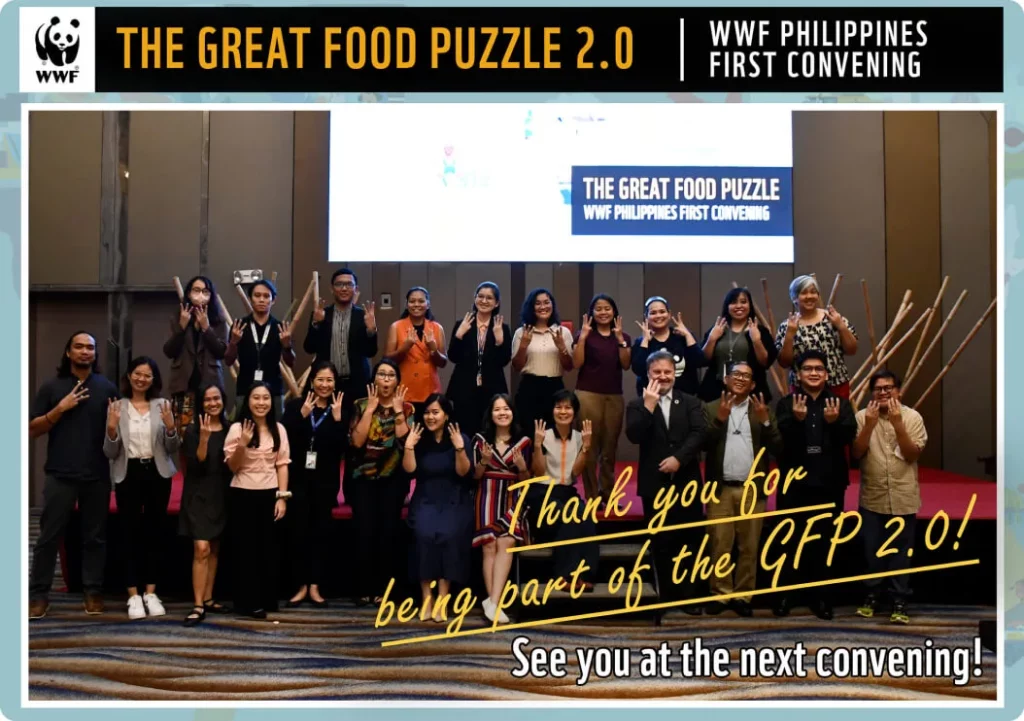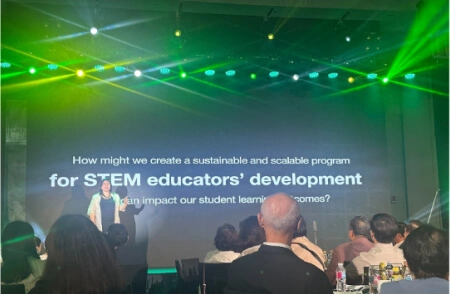Food for the Hungry takes part in WWF’s Great Food Puzzle

What we eat may be destroying the world.
Despite the statistics of 828 million people going to bed hungry every night, or 345 million people facing high levels of food insecurity in this year alone, current studies by the World Wildlife Fund (WWF) reveals that 40% of food is wasted globally alongside food systems contributing to 70% biodiversity loss.
How is this happening and more importantly, how can it be solved? This became the focus of WWF-Philippines’ launch of the Great Food Puzzle (GFP) 2.0 project last July 19 which invited development stakeholders to identify levers and actions to achieve climate, biodiversity, and health goals across food systems.

Cristina “Yumi” Tañada, Food for the Hungry, Inc. Branch Office’s (FHBO) Monitoring & Evaluation Coordinator, learned a lot from the event and shared that “the workshop was an informative experience, bringing together diverse organizations and individuals to discuss the complex interaction of food systems and their impact on both environment and people. It was inspiring to exchange insights and ideas with like-minded participants, highlighting the complex challenges we face and the collaborative solutions needed for a sustainable future and solve the Great Food Puzzle.”
While the event surmised that the Philippine food system is highly affected by climate change, there should be conscious efforts toward dietary shifts and the adoption of climate-smart agriculture to protect the environment while ensuring there is enough healthy food for the present and future generations.
“The Great Food Puzzle reflects the need for collective action at the national level. Where FH can contribute is in the influencing of communities in embracing a culture of responsible consumption to reduce food waste, while supporting initiatives that prioritize climate-smart agriculture. Communities can become key drivers of positive change, ultimately creating a more sustainable and resilient food system,” Yumi added.
The next steps of FHBO in its participation to the GFP 2.0 is to contribute relevant data before another iteration is released in 2024.


